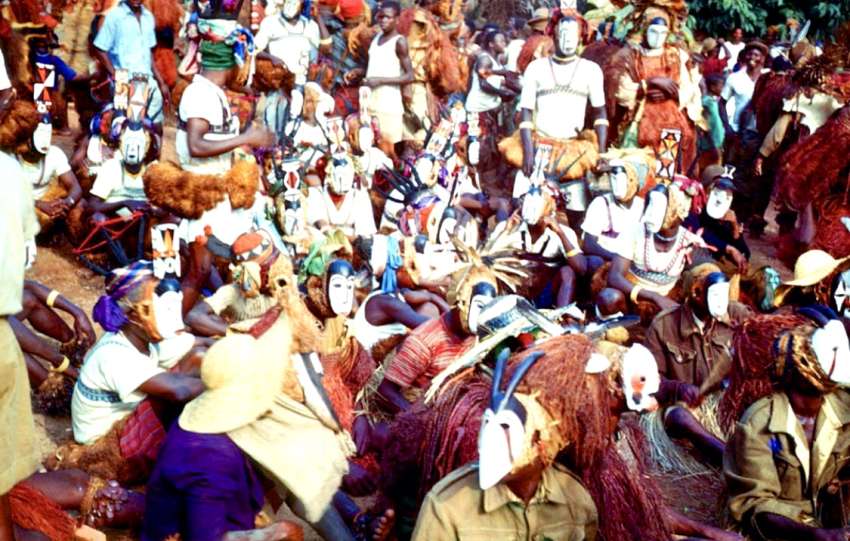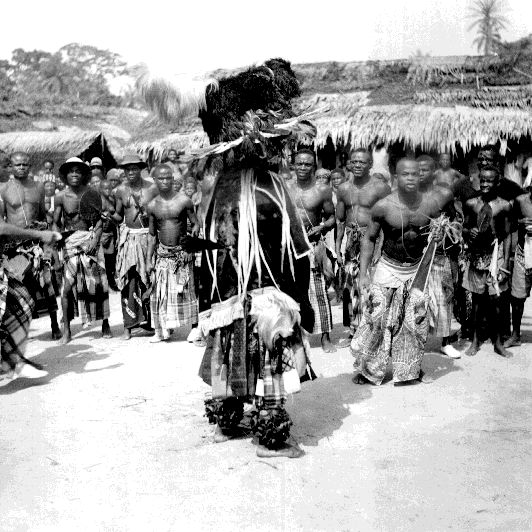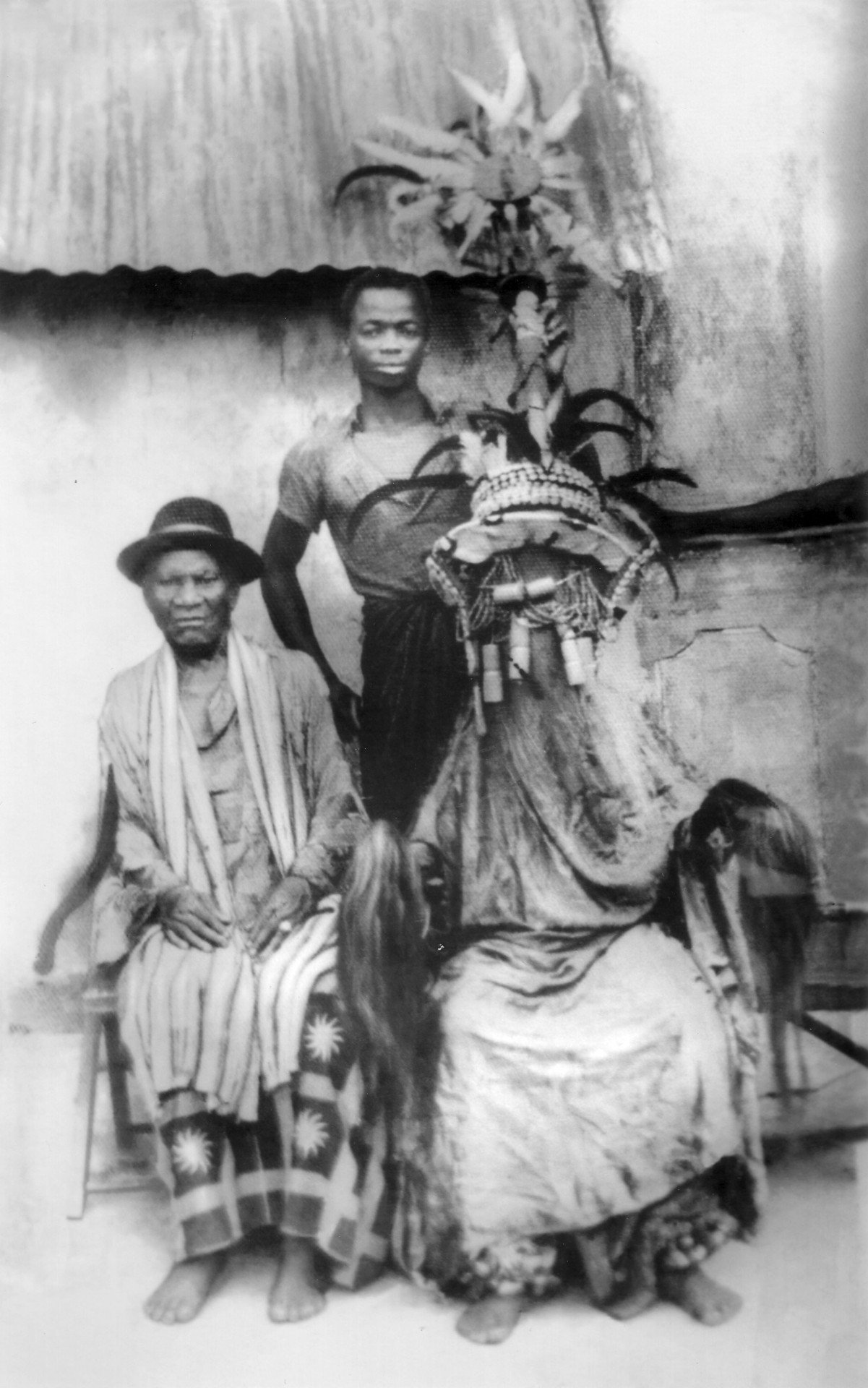
The Ogba people of Rivers State and the Oguta people of Imo State also known as the “Riverine Igbo”.
(Oru/Olu) which they call themselves and share several cultural similarities rooted in their geographical proximity within the Niger Delta region and their historical ties to the broader Igbo culture. Here are some key cultural similarities:
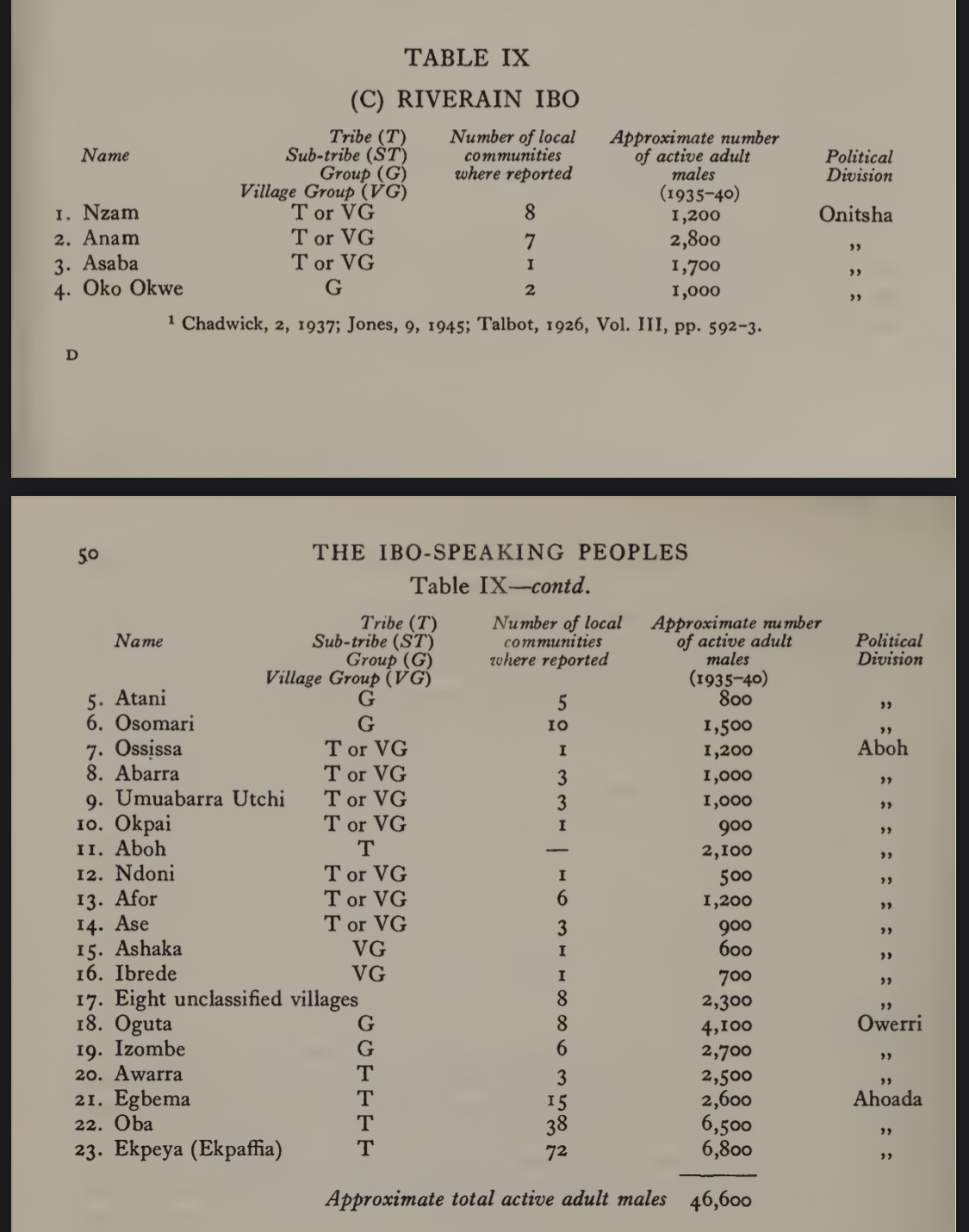
1. Origins:
The Riverain Igbo call themselves Oru, some of the communities found in Ogba today can trace they ancestry to Oguta northwards of them, communities like Umuebe, Umuenyika, Umuezali and
Umunkari. Showing an interwind descents between the two groups.
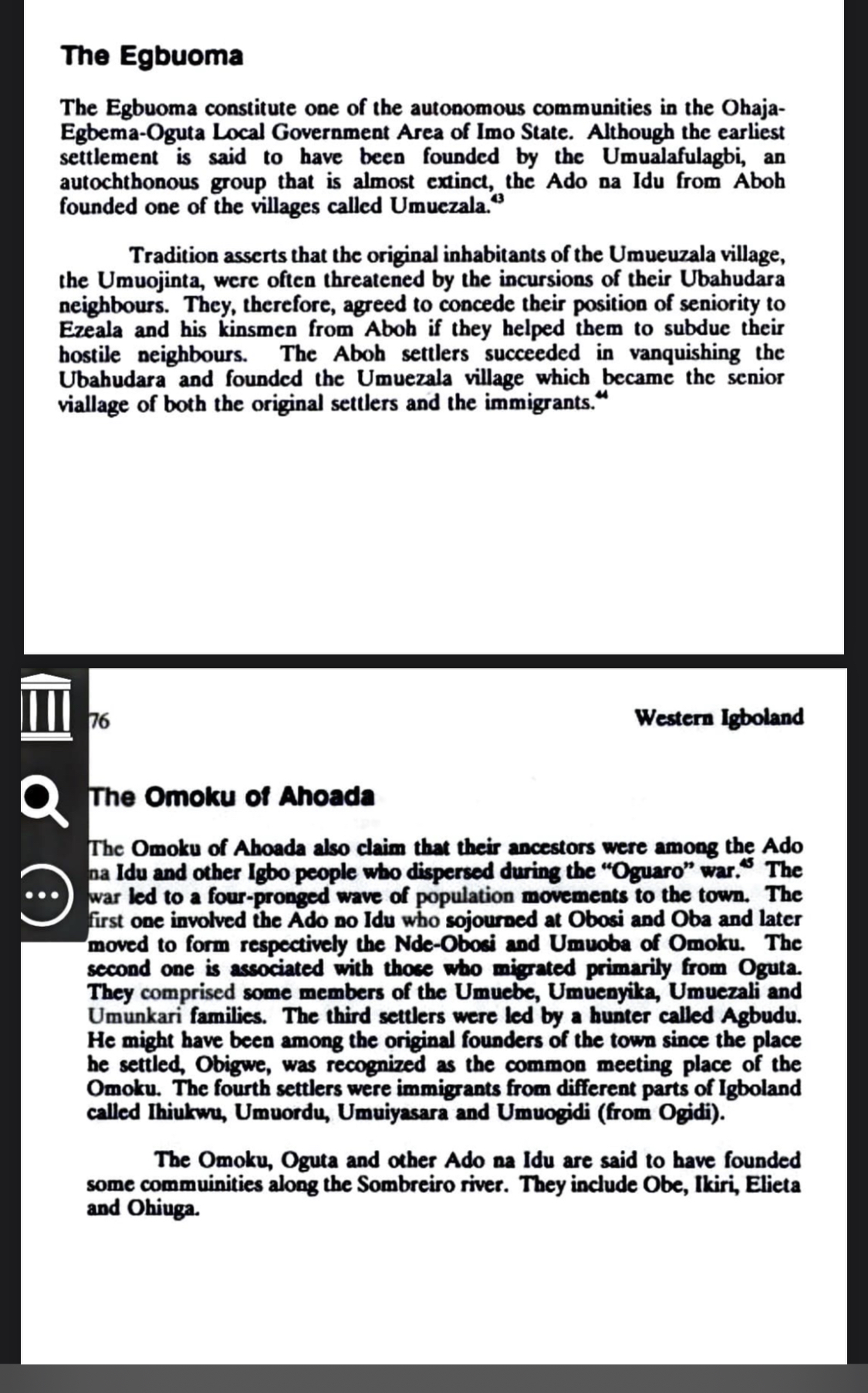
2. Language:
While the Ogba people speak a distinct Igbo dialect, their language shares many similarities with the Igbo spoken by the Oguta people. This linguistic overlap facilitates mutual understanding and reflects shared cultural heritage.
3. Traditional Religion and Beliefs:
Both the Ogba and Oguta people traditionally practiced forms of animism and ancestor veneration. They believe in a supreme deity and recognize various lesser gods or spirits linked to natural forces, such as Idemili and Ala. Water deities, especially given the riverine environment, play a significant role in their spiritual practices.
4. Festivals and Masquerades:
Both communities celebrate traditional festivals that honor deities, ancestors, and the agricultural cycle. Masquerades such Owu and Ogbukele are a significant part of these celebrations, symbolizing spirits from the ancestral world. These masquerades also serve social functions, such as providing entertainment, enforcing community norms, and representing the spiritual world.
5. Title-taking and Social Hierarchies:
Both the Ogba and Oguta people have traditional title systems that confer respect and authority on individuals who have achieved significant status within their communities. Titles such as Ozo and other chieftaincy titles serve to maintain social order and are accompanied by specific responsibilities are shared between the two.
6. Marriage and Family Structure:
Both groups practice extended family structures, and marriages are community-centered events, often involving elaborate ceremonies with dowries, bride price, and traditional rites that can be found among other Igbo cultural area. The sense of communal involvement in marriage, family support, and shared responsibilities is a shared cultural trait.
7. Agriculture and the Land:
Oil exploration is a significant part of the economy in modern times, both groups have traditionally been agrarian societies, with farming and fishing playing a key role in their livelihoods. Agricultural festivals such as “Iwa-ji/Iri-ji” to celebrate harvests are common.
Reference:
Forde, D., & Jones, G. I. (1950). The Ibo and Ibibio-speaking peoples of south-eastern Nigeria. Oxford University Press.
Jell-Bahlsen, S. (2000). The water goddess in Igbo cosmology: Ogbuide of Oguta Lake. Africa World Press.
Oriji, J. N. (1994). Traditions of Igbo origin: A study of pre-colonial population movements in Africa. Peter Lang Publishing.
Talbot, P. A. (1932). The peoples of Southern Nigeria: A sketch of their history, ethnology, and languages. Oxford University Press.
Nzewi, O. M. (2001). Social hierarchies in Igbo traditional societies. Anthropological Quarterly, 74(3), 412-431.


